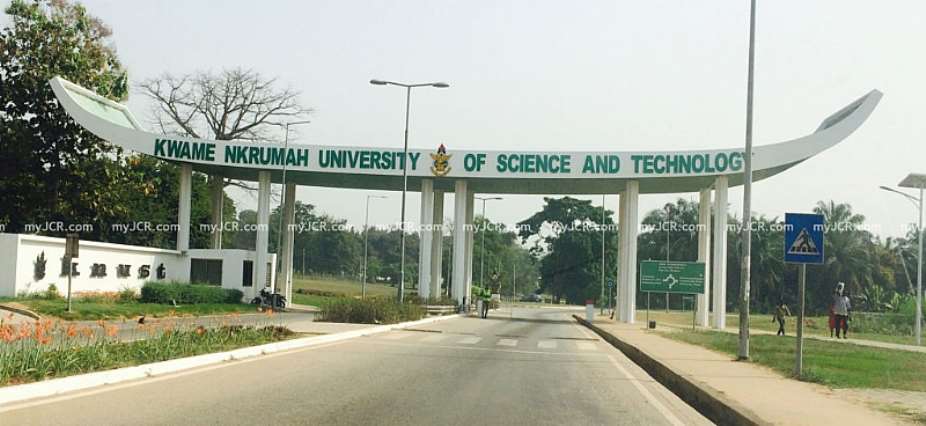An expert in medical law and Head of the commercial law department of the Kwame Nkrumah University of Science and Technology, Dr Ernest Owusu Dapaah is calling for laws to be enacted to regulate fertility clinics in the country.
Dr Owusu Dapaah made the call at the opening of the maiden Law medicine and ethics conference held under the theme “the beginning and ending of life, the legal and ethical discourse.”
The proposition comes on the back of the proliferation of hospitals specializing in fertility options like artificial insemination, In Vitro Fertilization and surrogacy options in Ghana.
Ghana had a fair share of this legal tassel in 2015 when 23 year old Denise offered to take ten thousand cedis, aside a four hundred cedi monthly stipend and a rented accommodation to carry the embryo of an unknown client in her womb.
In the end Denise who successfully delivered of quadruplets, felt cheated when her agents refused to offer her the agreed rental accommodation amidst complaints that the monthly stipends were not enough for her upkeep.
Her situation was even made the more complicated when it turned out that no contracts were signed between her and the Mount Camel Fertility Centre.
Dr Owusu Dapaah told Ultimate News, fertility clinics are coming up all over the country and sometimes when issues go wrong, the media picks it up and it is in the news. But interestingly our research has revealed that there is no legal regulation on assisted reproduction.
He told reporter Ivan Heathcote – Fumador, “It is worrisome that there is a regulatory vacuum when it comes to IVF treatment, surrogacy agreements and surrogacy connected IVF,”
Dr Owusu Dapaah insisted, “Essentially we are recommending that there should be a conscious initiative to adopt a comprehensive legislation on human fertility and there are a number of models and best practices to learn from to suit Ghana.”
Addressing the conference a legal practitioner and advisor on constitutional and surrogacy rights Maame A.S. Mensah Bonsu unpacked the constitutional challenges that surrogacy poses both to the carrier of the embryo and the commissioned parents.
She noted that women who become surrogates in Ghana are by necessary implication a vulnerable class. “They rarely wish their families know they are still employed. They don’t have any meaningful work and so they can take 40 weeks off and nobody really comes to look for them. As women they also form a demography which is so considered vulnerable that Ghana as a state has a whole ministry that is dedicated to their affairs.
She also called for a debate around the constitutional violations of restriction of such women by confining them to homes, religious beliefs of the commission parents and whether or not they are employed and should be compensated for still carrying out their duties during public holidays.
Other lecturers, lawyers and medical practitioners were also torn along various opinion points about frameworks to determine the legal parenting of a child born of a surrogate mother and the rights a surrogate mother has over the born child.





 Lay KPMG audit report on SML-GRA contract before Parliament – Isaac Adongo tells...
Lay KPMG audit report on SML-GRA contract before Parliament – Isaac Adongo tells...
 Supervisor remanded for stabbing businessman with broken bottle and screwdriver
Supervisor remanded for stabbing businessman with broken bottle and screwdriver
 NDC watching EC and NPP closely on Returning Officer recruitment — Omane Boamah
NDC watching EC and NPP closely on Returning Officer recruitment — Omane Boamah
 Your decision to contest for president again is pathetic – Annoh-Dompreh blasts ...
Your decision to contest for president again is pathetic – Annoh-Dompreh blasts ...
 Election 2024: Security agencies ready to keep peace and secure the country — IG...
Election 2024: Security agencies ready to keep peace and secure the country — IG...
 People no longer place value in public basic schools; new uniforms, painting wil...
People no longer place value in public basic schools; new uniforms, painting wil...
 'Comedian' Paul Adom Otchere needs help – Sulemana Braimah
'Comedian' Paul Adom Otchere needs help – Sulemana Braimah
 Ejisu by-election: Only 33% of voters can be swayed by inducement — Global InfoA...
Ejisu by-election: Only 33% of voters can be swayed by inducement — Global InfoA...
 Minority will expose the beneficial owners of SML, recover funds paid to company...
Minority will expose the beneficial owners of SML, recover funds paid to company...
 Prof. Opoku-Agyemang has ‘decapitated’ the NPP’s strategies; don’t take them ser...
Prof. Opoku-Agyemang has ‘decapitated’ the NPP’s strategies; don’t take them ser...
